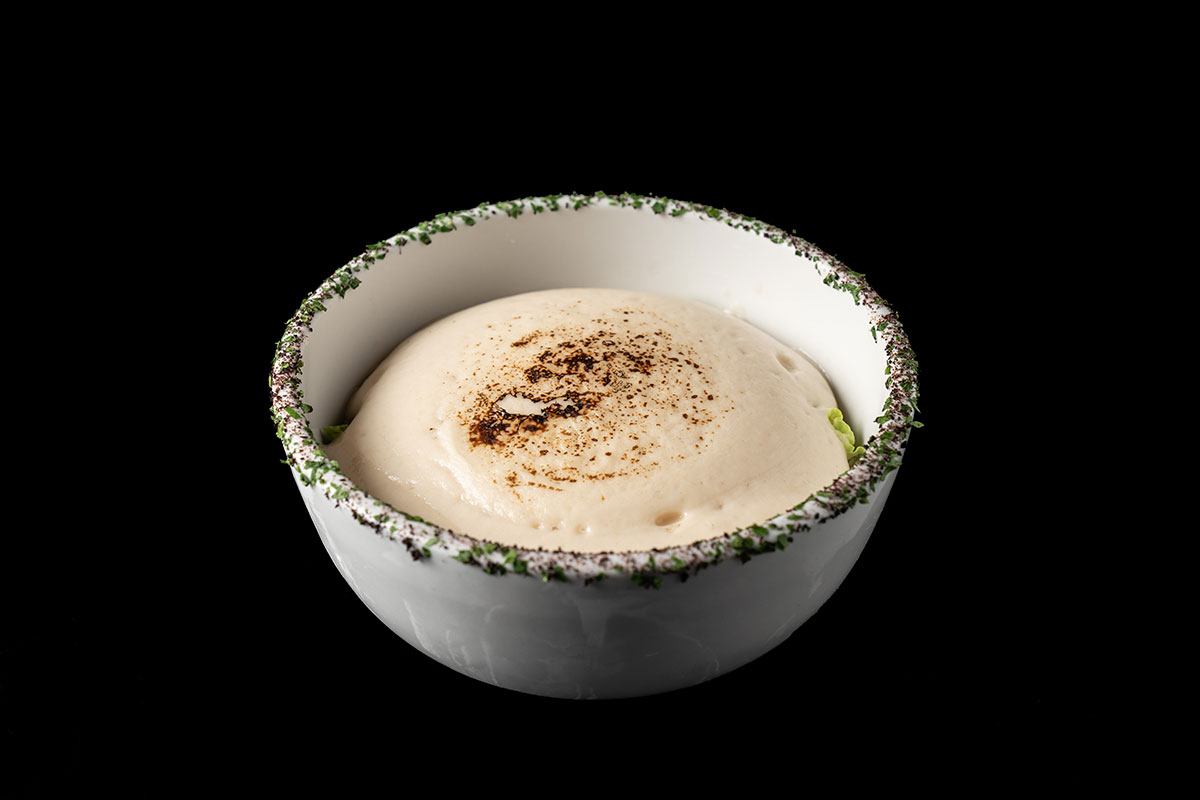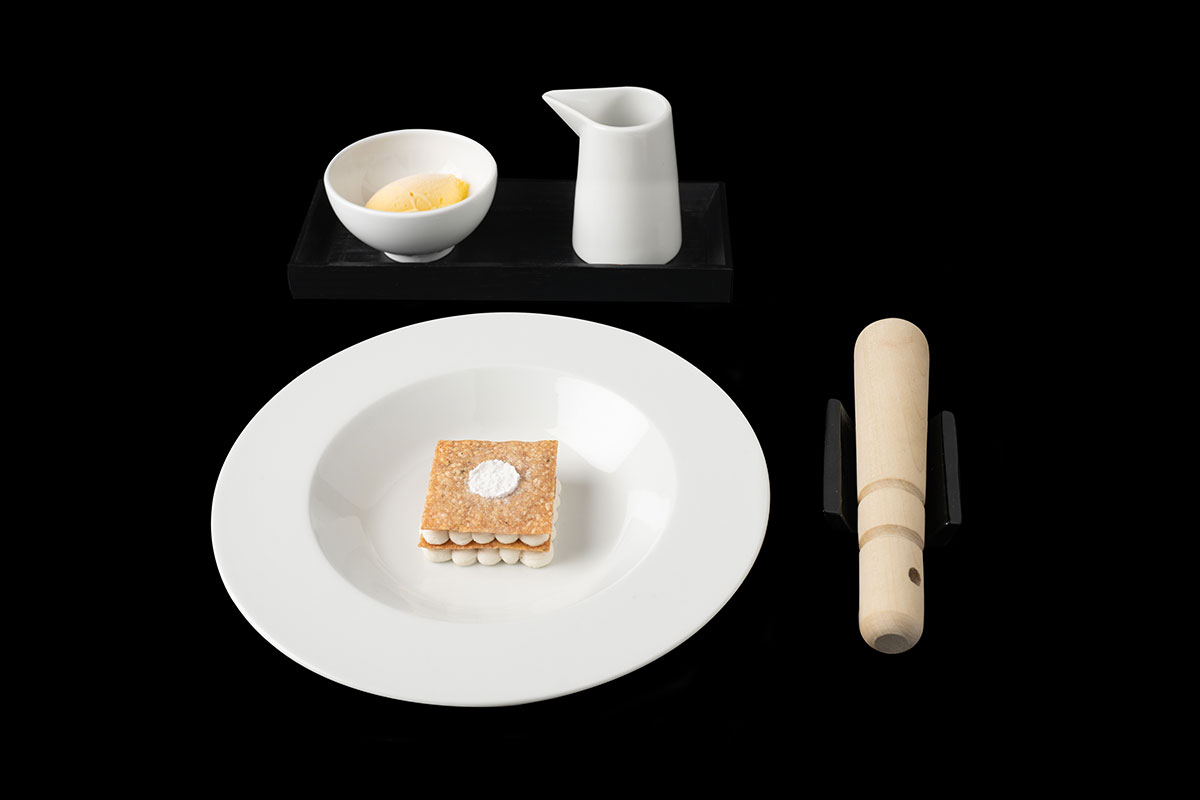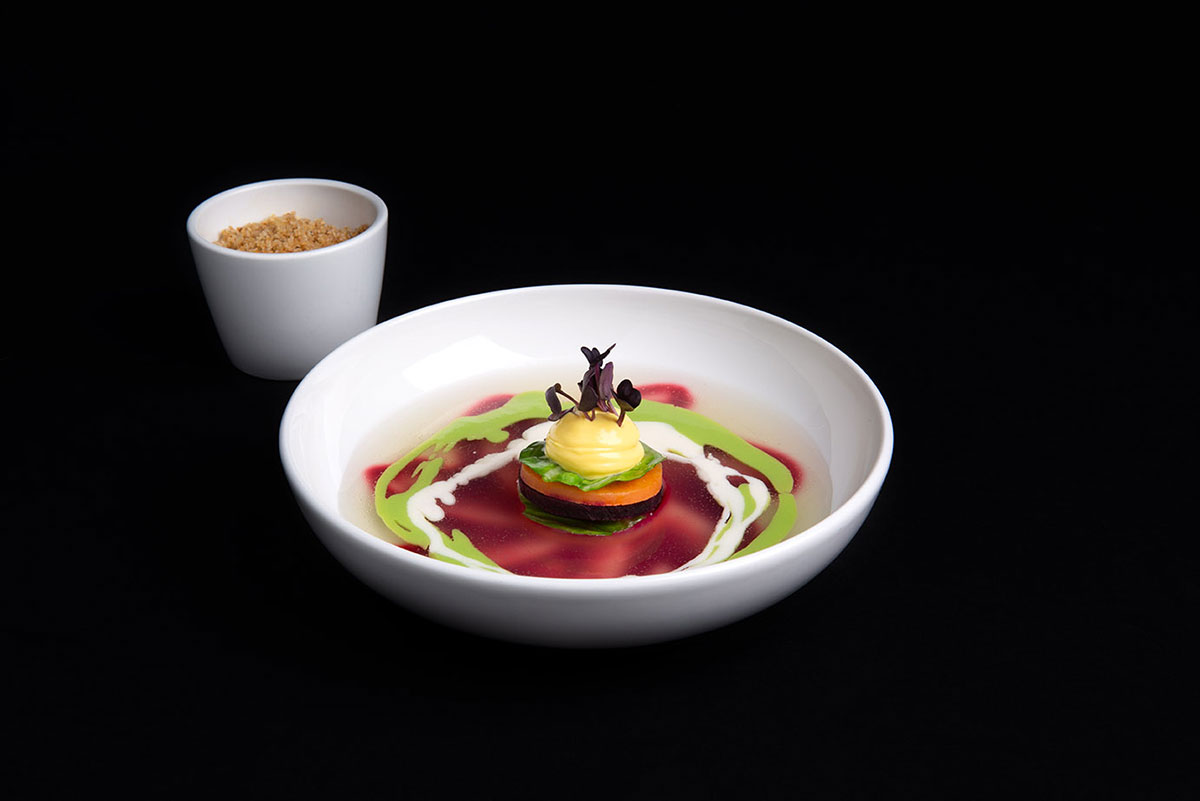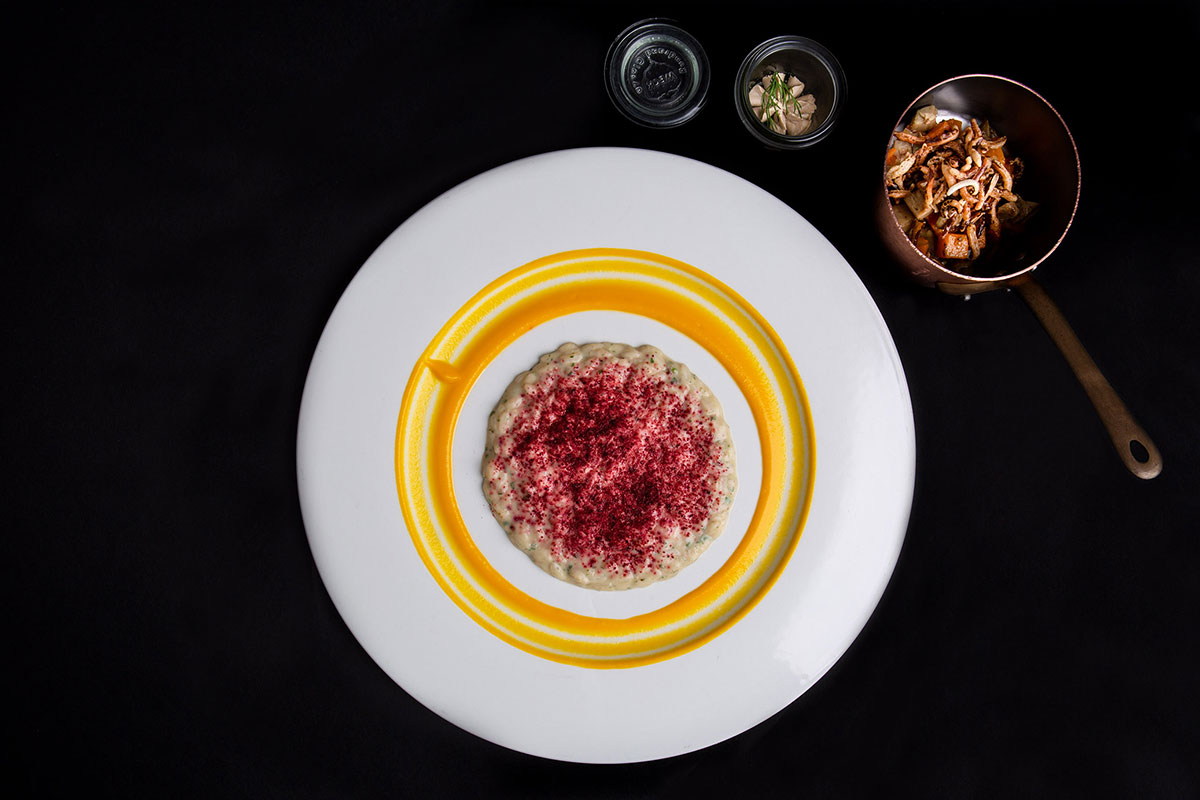The cook’s role
THE COOK’S ROLE
Cooks have a great responsibility which, unfortunately, is not generally recognised. In most cases, cooks learn their trade to give guests immediate pleasure, without however thinking about the consequences that can arise due to wrongly associated types of food, following incorrect dietary models.
The same also applies to families, school and community canteens.
The correct attitude is to be fully aware of what you are cooking, following your conscience and devotion, so a dietary model can improve our body, mind and soul.
What we cook should, on the one hand, be in line with our way of being, while on the other, it should follow the guidelines of an important dietary philosophy that has ethical, philosophical, and spiritual foundations.
Our understanding is limited by what we know and what we have implemented. If, as mentioned above, there are discrepancies, it means that the dietary philosophy we have followed has some shortcomings. If, on the other hand, at every cognitive and evolutionary stage we surmount, everything remains coherent and works well, this means that the specific dietary philosophy is correct, even in terms of aspects that we do not understand. We will then be able to trust and follow the diet confidently, as in the three great traditions I have observed.
The key to a cuisine that ensures wellbeing is basically very simple: we must lovingly and respectfully cook locally-grown, seasonal ingredients.
Nature itself is the protagonist of healthy eating, of which our body is an integral part. Anyone who cooks has the role of an intermediary between the food and the guests. Food is transformed so that it can be more digestible, while at the same time it has greater potency if its essence – in terms of colour, flavour, scent and texture – is preserved. You can find more information about this in my books, especially in “Il codice della cucina vegetariana” (“The code of vegetarian cuisine”).
Another fundamental aspect is the cook’s attitude while cooking. Cooks must demonstrate integrity, both towards themselves and others, be unruffled, and consider both food and guests as precious, interconnected elements, while also maintaining an attitude of service. All this improves quality in terms of form and substance. Finally, the energy provided by food is very different if vegetables or meat are transformed, if the ingredients are produced organically, as opposed to grown using intensive cultivation.
The same also applies to families, school and community canteens.
The correct attitude is to be fully aware of what you are cooking, following your conscience and devotion, so a dietary model can improve our body, mind and soul.
What we cook should, on the one hand, be in line with our way of being, while on the other, it should follow the guidelines of an important dietary philosophy that has ethical, philosophical, and spiritual foundations.
Our understanding is limited by what we know and what we have implemented. If, as mentioned above, there are discrepancies, it means that the dietary philosophy we have followed has some shortcomings. If, on the other hand, at every cognitive and evolutionary stage we surmount, everything remains coherent and works well, this means that the specific dietary philosophy is correct, even in terms of aspects that we do not understand. We will then be able to trust and follow the diet confidently, as in the three great traditions I have observed.
The key to a cuisine that ensures wellbeing is basically very simple: we must lovingly and respectfully cook locally-grown, seasonal ingredients.
Nature itself is the protagonist of healthy eating, of which our body is an integral part. Anyone who cooks has the role of an intermediary between the food and the guests. Food is transformed so that it can be more digestible, while at the same time it has greater potency if its essence – in terms of colour, flavour, scent and texture – is preserved. You can find more information about this in my books, especially in “Il codice della cucina vegetariana” (“The code of vegetarian cuisine”).
Another fundamental aspect is the cook’s attitude while cooking. Cooks must demonstrate integrity, both towards themselves and others, be unruffled, and consider both food and guests as precious, interconnected elements, while also maintaining an attitude of service. All this improves quality in terms of form and substance. Finally, the energy provided by food is very different if vegetables or meat are transformed, if the ingredients are produced organically, as opposed to grown using intensive cultivation.

Relationships and food

Food is the main element that can bring us closer to ourselves, to others, to the phenomenon of nature and to God.
During gestation we are connected to our mother by the umbilical cord. After our birth, we are fed first by our mother’s breast, then by the hands that cook for us. We spend many of our most important moments eating, with our family, at the school canteen, with friends, when we first go out with our partner, when we marry, during business dinners and so on.
It is easy to see how the food we receive or choose is crucial to good relationships.
Food always accompanies us: when we are healthy, to keep us strong, or when are sick, to heal us. There are moments in life when we need more food and others when we need less. However, certain rules are difficult to follow all the time because there are endless exceptions and changes.
In general, for example, when we have to do something physically draining, we should not eat too much. When we need to think clearly, or are under pressure, we should eat nutritious, hot food, while if we meditate, we should eat very little and breathe a lot. If children eat heavy food before going to school, they will not be able to concentrate properly during the lessons. Food cooked with indifference by a mother will not convey affection to her child.
Sometimes, however, if we are inspired or in love, we can digest anything, but if we have lost control over accumulated tensions or frustrations, we are unable to assimilate anything. In this case, we must strive to achieve a better life balance, and then everything will begin to flow seamlessly again.
When we eat, we understand a lot about our body and the energy required to make it function. We feel gratified when we eat food. Our degree of appreciation depends on our psycho-physical state.
It is very important to adapt the food we eat to different situations. How many times have we found ourselves in circumstances that did not sit well with us? Weddings with bad food, heavy business dinners, or meals with friends with too much alcohol involved, when you are unable to enjoy the beautiful surroundings, and so on.
It is equally important to choose our dining companions well. In biblical stories, food always has a precise connotation according to those with whom it is shared. This happens in every culture. For example, Shri Caitanya Maprabhu, the inspirer of an important religious movement of Vedic culture, was compassionate with all beings, although he was rigorous in choosing the person with whom he ate his meals.
What we eat speaks for who we are, and the type of food we eat can affect those around us, for better or worse.
People are identified according to what they eat and the company they keep.
During gestation we are connected to our mother by the umbilical cord. After our birth, we are fed first by our mother’s breast, then by the hands that cook for us. We spend many of our most important moments eating, with our family, at the school canteen, with friends, when we first go out with our partner, when we marry, during business dinners and so on.
It is easy to see how the food we receive or choose is crucial to good relationships.
Food always accompanies us: when we are healthy, to keep us strong, or when are sick, to heal us. There are moments in life when we need more food and others when we need less. However, certain rules are difficult to follow all the time because there are endless exceptions and changes.
In general, for example, when we have to do something physically draining, we should not eat too much. When we need to think clearly, or are under pressure, we should eat nutritious, hot food, while if we meditate, we should eat very little and breathe a lot. If children eat heavy food before going to school, they will not be able to concentrate properly during the lessons. Food cooked with indifference by a mother will not convey affection to her child.
Sometimes, however, if we are inspired or in love, we can digest anything, but if we have lost control over accumulated tensions or frustrations, we are unable to assimilate anything. In this case, we must strive to achieve a better life balance, and then everything will begin to flow seamlessly again.
When we eat, we understand a lot about our body and the energy required to make it function. We feel gratified when we eat food. Our degree of appreciation depends on our psycho-physical state.
It is very important to adapt the food we eat to different situations. How many times have we found ourselves in circumstances that did not sit well with us? Weddings with bad food, heavy business dinners, or meals with friends with too much alcohol involved, when you are unable to enjoy the beautiful surroundings, and so on.
It is equally important to choose our dining companions well. In biblical stories, food always has a precise connotation according to those with whom it is shared. This happens in every culture. For example, Shri Caitanya Maprabhu, the inspirer of an important religious movement of Vedic culture, was compassionate with all beings, although he was rigorous in choosing the person with whom he ate his meals.
What we eat speaks for who we are, and the type of food we eat can affect those around us, for better or worse.
People are identified according to what they eat and the company they keep.
Food and Evolving Practices
It is important that the food we eat follows Dharma, the universal ethical order. We all know what is right, but if we choose foods that do not follow this path, then our conscience suffers. Our levels of sensitivity wane and we no longer understand the difference. A thief who steals for the first time will feel that what he has done is not right, but the tenth time he steals, he will no longer notice it. The same mechanism applies to food. At first, when it is not healthy or right for us, we notice, while later we will no longer be aware of it, and this will affect both our body and our conscience.
On the contrary, if we follow a healthy diet, after only a short time we feel that we are on the right track.
Nutrition also calls for introspection. Indeed, this practice is actually a requirement. If, for instance, we become vegetarian following a decision we have taken in a rational manner and then do not apply the principles of this choice in everyday life, there will be an imbalance.
The first principle is avoiding cruelty, which must be applied towards our fellow citizens and to all beings.
The second fundamental aspect is the attitude towards those who created us, with a feeling of joy and gratitude that changes the perception of food. Cooking and eating become an extraordinary means of expressing our relationship with God. Therefore, our relationship with others also changes. Food is a precious gift, precisely because it allows us to achieve communion and therefore it is worth contemplating. If food is an end in itself, with our focus only on gratifying our senses, we derive true pleasure in a very limited way. It is as if, when we are gazing at an idyllic landscape, at a certain point the light is switched off. div>
On the contrary, if we follow a healthy diet, after only a short time we feel that we are on the right track.
Nutrition also calls for introspection. Indeed, this practice is actually a requirement. If, for instance, we become vegetarian following a decision we have taken in a rational manner and then do not apply the principles of this choice in everyday life, there will be an imbalance.
The first principle is avoiding cruelty, which must be applied towards our fellow citizens and to all beings.
The second fundamental aspect is the attitude towards those who created us, with a feeling of joy and gratitude that changes the perception of food. Cooking and eating become an extraordinary means of expressing our relationship with God. Therefore, our relationship with others also changes. Food is a precious gift, precisely because it allows us to achieve communion and therefore it is worth contemplating. If food is an end in itself, with our focus only on gratifying our senses, we derive true pleasure in a very limited way. It is as if, when we are gazing at an idyllic landscape, at a certain point the light is switched off. div>


These rules, which are dictated above all by the sacred texts, are not restrictive, but rather represent the truth in an ontological sense. Feeling restricted if you do not eat a certain food is limiting only in the sense of not gratifying your senses, but it is in fact more worthwhile in terms of achieving gratification at a higher level.
I realise that a cruelty-free cuisine is more all-encompassing than one that involves cruelty to animals. A case in point is eating foie gras, which is such a negative thing to do that we restrict our vision to that of a dismal world.
The pseudo-renunciation of this is essentially a starting point on our journey towards a higher state of mind.
The most enlightening text I have read, which has influenced my food choices, and not only these, is Bhagavad-gita – the song of the Blessed One – which provides an answer to any question we might ask ourselves. Krishna – the Supreme Lord – suggests the attitude we must adopt towards Him when we eat.
We must acknowledge that food is His gift, which has been given to us through His benevolence. When we have prepared our food, we must offer it to Him before eating it and we must thank Him by praying to Him. A Christian prayer, for example, is “O Lord, bless the food I am about to eat, so that I can remain at your Holy service”. The food is then transformed into divine substance and an extraordinary instrument of understanding, of a relationship with Him and a stimulus for His mercy. The foods offered must comply with His rules, mainly as regards non-cruelty, and therefore can be fruit, vegetables, cereals, dairy products, and water.
It is extraordinary to eat with gratitude, savouring every single bite and feeling at one with Krishna. Food, which is carefully cooked and offered, will become true nectar and an inexhaustible source of pleasure. At Joia, this rite of purification is celebrated every time a dish is served.
I realise that a cruelty-free cuisine is more all-encompassing than one that involves cruelty to animals. A case in point is eating foie gras, which is such a negative thing to do that we restrict our vision to that of a dismal world.
The pseudo-renunciation of this is essentially a starting point on our journey towards a higher state of mind.
The most enlightening text I have read, which has influenced my food choices, and not only these, is Bhagavad-gita – the song of the Blessed One – which provides an answer to any question we might ask ourselves. Krishna – the Supreme Lord – suggests the attitude we must adopt towards Him when we eat.
We must acknowledge that food is His gift, which has been given to us through His benevolence. When we have prepared our food, we must offer it to Him before eating it and we must thank Him by praying to Him. A Christian prayer, for example, is “O Lord, bless the food I am about to eat, so that I can remain at your Holy service”. The food is then transformed into divine substance and an extraordinary instrument of understanding, of a relationship with Him and a stimulus for His mercy. The foods offered must comply with His rules, mainly as regards non-cruelty, and therefore can be fruit, vegetables, cereals, dairy products, and water.
It is extraordinary to eat with gratitude, savouring every single bite and feeling at one with Krishna. Food, which is carefully cooked and offered, will become true nectar and an inexhaustible source of pleasure. At Joia, this rite of purification is celebrated every time a dish is served.
DELIVERY & TAKE AWAY
Se desiderate prenotare un tavolo superiore alle 6 persone vi preghiamo di contattarci all’indirizzo e-mail joia@joia.it o al numero di telefono 02 2049244 / 0229522124.


